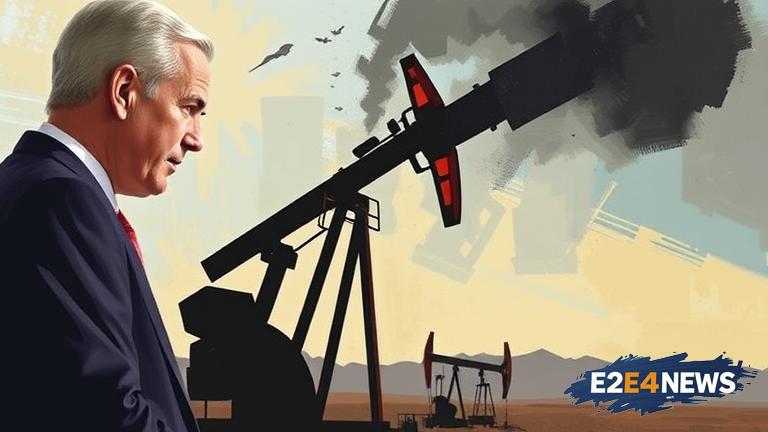California Governor Gavin Newsom is facing a major challenge in boosting gas production in the state after his administration’s policies made it uninvestable for oil companies. The state’s rigid regulations and high taxes have driven away investors, leaving California reliant on imported oil. Newsom’s efforts to increase gas production come as the state is struggling to meet its energy demands, with gas prices soaring to record highs. The governor’s plan to boost gas production includes investing in new drilling technologies and providing incentives for oil companies to operate in the state. However, critics argue that these measures are too little, too late, and that the state’s anti-oil policies have already done irreparable damage to the industry. The oil industry has been a significant contributor to California’s economy, providing thousands of jobs and generating billions of dollars in revenue. However, Newsom’s administration has been vocal about its opposition to oil production, citing environmental concerns and climate change. The state’s ban on new oil drilling and its strict regulations on existing operations have made it difficult for oil companies to operate in California. As a result, many oil companies have abandoned their operations in the state, leaving behind a trail of abandoned wells and idle equipment. The decline of the oil industry in California has had a ripple effect on the state’s economy, with many businesses that rely on the industry struggling to stay afloat. Newsom’s efforts to boost gas production are seen as a desperate attempt to mitigate the damage caused by his administration’s policies. The governor’s plan has been met with skepticism by industry experts, who argue that it will take years to reverse the damage caused by the state’s anti-oil policies. Furthermore, the state’s energy needs are not being met, with California relying heavily on imported oil to meet its energy demands. The reliance on imported oil has significant implications for the state’s energy security and its ability to meet its climate goals. Newsom’s administration has been criticized for its lack of a coherent energy policy, with many arguing that the state’s anti-oil policies are at odds with its climate goals. The state’s climate goals require a significant reduction in greenhouse gas emissions, but the decline of the oil industry in California has made it difficult to achieve these goals. In addition, the state’s energy needs are not being met, with many Californians struggling to afford the high cost of energy. The high cost of energy has significant implications for the state’s economy, with many businesses struggling to stay afloat due to the high cost of energy. Newsom’s efforts to boost gas production are seen as a necessary step to address the state’s energy needs, but many argue that it is too little, too late. The state’s energy future is uncertain, with many questioning whether Newsom’s plan will be enough to reverse the decline of the oil industry in California. The decline of the oil industry in California has significant implications for the state’s economy and its ability to meet its energy needs. As the state struggles to boost gas production, many are left wondering what the future holds for California’s energy industry. The state’s energy policy is in disarray, with many arguing that a more coherent approach is needed to address the state’s energy needs. Newsom’s administration has been criticized for its lack of leadership on energy policy, with many arguing that a more comprehensive approach is needed to address the state’s energy challenges. The state’s energy challenges are significant, with many Californians struggling to afford the high cost of energy. The high cost of energy has significant implications for the state’s economy, with many businesses struggling to stay afloat due to the high cost of energy.





